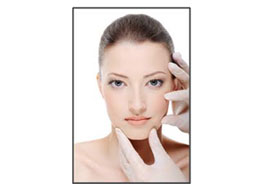Rosacea…Can I be susceptible?
by Nazli Theron

Rosacea is a harmless non-contagious condition; affecting 1 in 10 adults starting from the age of 20 it favors fair skinned females. It is a chronic skin condition causing inflammation and redness and can often also develop a rash or acne on the face. Rosacea can last for many years and can come in stages where it may completely disappear and easily be triggered to reappear with no notice.
Symptoms:
- Redness (May resemble a blush or sunburn that does not go away)
- Flushing (Most people affected have a history of frequent blushing or flushing. This facial redness may come and go, and is often the earliest sign of the disorder)
- Spider-like blood vessels on the face
- Red nose (The skin may thicken and enlarge from excess tissue)
- Acne-like skin sores that may ooze or crust (Small red solid bumps or pus-filled pimples but absence of black heads, this is not acne)
- Burning or stinging (Itching or a feeling of tightness may also develop)
- Irritated, bloodshot, watery eyes (Eyelids may become red and swollen, and styes are common)
4 Stages of Rosacea:
- Stage 1- Erythematotelangiectatic Rosacea: Redness, flushing visible blood vessels
- Stage 2- Papulopustular Rosacea: Patches, bumps and pimples
- Stage 3- Phymatous Rosacea: Swelling and inflammatory bumps on the nose, thickening of skin
- Stage 4- Ocular Rosacea: Symptoms affecting the eyes, inflammation around the eyelids, dry eyes, tearing, burning, potential vision loss from corneal damage

Possible causes of Rosacea:
- Hereditary
- Complications in the blood vessels in the skin
- Sun damage on a connective tissue level
- Adverse reaction to some medications
Treatment:
There is no known cure. Try to establish what aggravates our Rosacea, keep a diary and note when and what you did when it becomes worse, this will help you control your outbreaks. Triggers vary from person to person. Remember Rosacea is not acne, thus over the counter acne medications will not help. Oral antibiotics prescribed by your Dermatologist (such as Tetracycline, Minocycline, or Doxycycline) or topical antibiotics (such as Metronidazole) may control acne-like skin problems. Your doctor might consider stronger alternatives like Vitamin A derivatives (Isoretinol or Accutane), however great care needs to be taken. Invest in skin care products formulated specifically for sensitive and aggravated skins, products with ingredients that will strengthen the skins natural defence, give protection and strengthen the capillaries of the skin to improve the redness like artemia extract, white tea, yeast extracts and horse chestnut.
Factors that can aggravate Rosacea:
- Heat (including baths, showers and steam)
- Wind
- Sunlight (Wear sunscreen every day)
- Hot and spicy food
- Cold conditions
- Menopause
- Alcohol
Rosacea can be embarrassing and severely affect one’s confidence, try and identify your main triggers, consult with your Dermatologist and to improve the red hue opt for a green tinted moisturizer, most of all be contentious of what you are putting in your body and onto your skin.
What can SBL offer you?
- Salon Service: Desensitizing Facial 60min (250 AED)
- Moisturizer: ComfortZone Skin Resonance Fluid (332 AED)
ComfortZone Skin Resonance Cream SPF 15 (374 AED) - Exfoliation: ComfortZone Skin Resonance Peeling (194 AED) – Non-mechanical
- Mask: ComfortZone Skin Resonance Mask (271 AED)
Post Your Comments